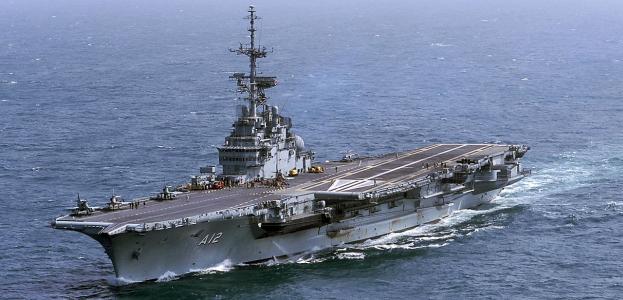 Aircraft carriers can be tough. They cost a fortune to build, so most nations can afford only one or two. They are demanding and costly to operate. They are also extremely expensive to clean up enough to be scrapped.
Aircraft carriers can be tough. They cost a fortune to build, so most nations can afford only one or two. They are demanding and costly to operate. They are also extremely expensive to clean up enough to be scrapped.
São Paulo, a 34,000-ton, 870-ft Brazilian aircraft carrier, is a good example. As reported by the NY Times, the 60-year-old carrier, packed with an undetermined amount of asbestos, was being towed in circles off the coast of Brazil after it was refused permission to dock in Turkey for recycling. The problem? No government wants anything to do with it.
On Friday, the Brazilian Navy sank the ship in the Atlantic Ocean off the nation’s coast. Environmentalists say doing so will cause irreparable environmental damage and could be a violation of international law.
The director of the Basel Action Network (BAN), Jim Puckett, accused Brazil’s navy of “gross negligence”.
The carrier, which served in the French Navy under the name Foch from 1963 until it was sold in 2000, hadn’t been in service for roughly a decade. Some of its compartments have accumulated so much dangerous gas that it is now unsafe to enter them, inspectors said.
The 34,000-ton carrier had been towed by a tug to Europe but did not get past the Gibraltar straits, and was returned across the Atlantic after Turkey decided it was an environmental hazard.
The Navy said in a statement that the ship was taking on water and was at risk of sinking, so it has not been allowed to dock at Brazilian ports.
Thanks to David Rye for contributing to this post.
